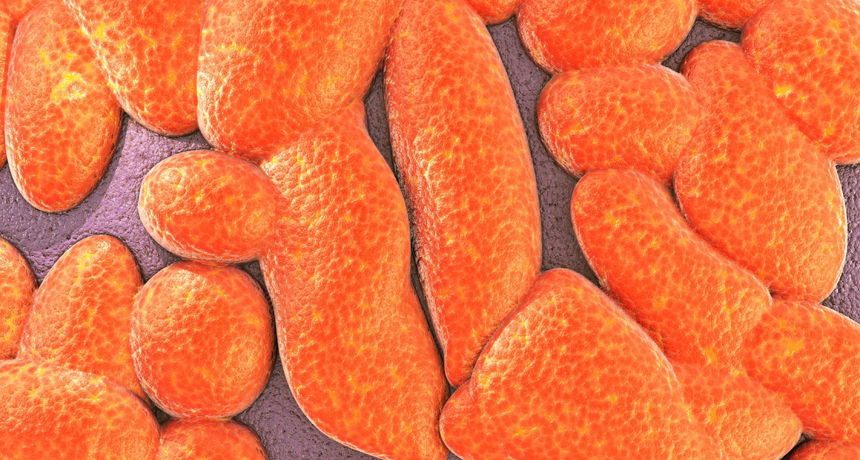
MICROBIAL MIX After switching from an omnivorous diet to an animal-based one, people had a greater abundance of Bilophila (shown) and other gut bacteria that can withstand bile.
MichaelTaylor3d/Shutterstock

MICROBIAL MIX After switching from an omnivorous diet to an animal-based one, people had a greater abundance of Bilophila (shown) and other gut bacteria that can withstand bile.
MichaelTaylor3d/Shutterstock